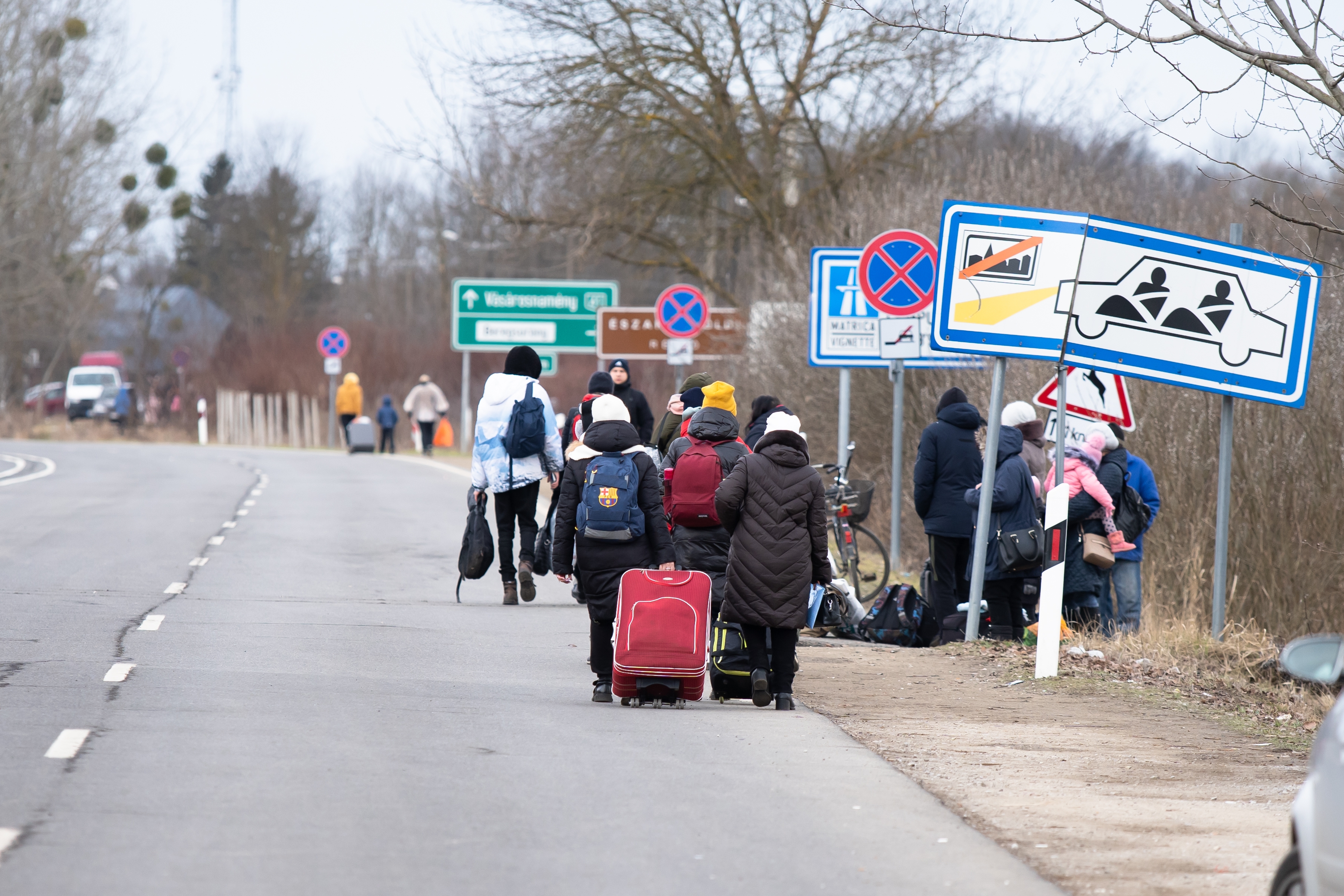With so much of Ukraine's vital infrastructure targeted by Russia, widespread power outages are the norm. It falls to local crews to fix power lines, all the while under fire. Special correspondent Willem Marx and videographer Edward Kiernan report from the town of Orikhiv near the frontlines in southeastern Ukraine.

As a nonprofit journalism organization, we depend on your support to fund coverage of global conflicts. Help us continue funding the hard costs of in-depth coverage of the Ukraine invasion—including travel, hostile environment safety training, and the increased security expenses that arise from reporting in war zones.
Read the Full Transcript
Judy Woodruff: Flicking on the lights in your home is not so simple in the middle of a war zone.
With so much of Ukraine's vital infrastructure targeted by Russia, widespread power outages are the norm. It falls to local crews to restring power lines, all the while under fire.
From the town of Orikhiv near the front lines in Southeastern Ukraine, special correspondent Willem Marx and videographer Edward Kiernan report.
Willem Marx: Dmytro Klepcha hurries his men to prepare for the day's work. They change into uniforms, apprehension apparent on every face.
Dmytro recently turned 40. For 20 years, he hasn't touched a cigarette. That has changed after the war arrived in his hometown, Orikhiv. But this brief smoke break is interrupted, another incoming shell. Though safe inside the shelter, the booms keep on coming, a terrifying soundtrack to a Wednesday morning.
No break in the barrage, but urgent repairs are required to restore power for the people they serve.
Dmytro Klepcha, Chief Engineer (through translator): In this kind of job, you understand you cannot abandon your place of work.
Willem Marx: Dmytro is the manager of the local power company and worries about his staff.
Dmytro Klepcha (through translator): To lose a worker who has a family, kids, wife — this team are all young — that is the most difficult. And every day when my team goes out, when they're working, I just worry so much.
Willem Marx: For the last half-an-hour, the shelling here has been pretty constant.
And as this team prepares to go out to repair pylons, replace wires, the control room just told us that electricity to the entire town has been cut. The engineers start packing up their gear, a band of brothers heading out, not to fight, but to fix the fighting's damage.
On this day, the shelling is too severe for them to travel into the town center. Instead, they follow pylons through plowed fields. For hundreds of miles, front lines and power lines alike crisscross this conflict. In their years on the job, these men have learned to move fast and pull hard.
This work is dangerous at the best of times. These may be amongst the worst. On the horizon, a plume of smoke signaling another shell. We're about two-and-a-half miles outside of Orikhiv, and tank tracks stretch off into this field. Those vehicles presumably targeted led to this strike crater right here. And the shrapnel we found inside it is what's damaging these wires overhead.
The frequency of fire has left dozens of equally damaged sites nearby. Back in the dispatch center, Dmytro, Denis and her colleague, Oksana Yevsieieva discuss the growing list of locations they must visit. Calls come in from residents reporting yet more.
There's no power going through there. Orikhiv's mayor visits each day to warn them where they cannot safely go.
Oksana Yevsieieva, District Dispatcher (through translator): We have been coming to (INAUDIBLE) three times to make repairs. And all three times, there was shelling and there was no chance to put up the wires.
In (INAUDIBLE) there are Russians. We cannot get there.
Willem Marx: Because the Russians have taken that area?
Oksana Yevsieieva: Yes. Yes.
Willem Marx: Is this the most damage to the system you have ever seen?
Rattling windows her new normal.
Yes, you can hear it.
On another map, Dmytro explains how the day's drumbeat of artillery has cut off all power. Is the line that's been cut between here and here?
Some homes here already destroyed, many more abandoned, except for the pets. Angelika Zakharchenko and her husband, Yuri, are collecting food to feed their neighbors' dogs.
Angelika Zakharchenko, Orikhiv Resident (through translator): We have come together as never before. We have shown to everyone this is happening during this time in the 21st century. The war is, of course, terrifying.
Willem Marx: And she told us the electrical workers exemplify this solidarity.
Angelika Zakharchenko (through translator): These guys are just great. They keep doing their work, despite the shooting. No one fled. I think it says a lot about them that they care about others and not just about themselves.
Willem Marx: Despite the danger, Dmytro calls his day's work a duty.
Dmytro Klepcha (through translator): We all understand, all of us working on the grid, that, without electricity, there will be chaos at the bakeries, in the hospitals and homes, most importantly. So we understand that we have to carry out our obligation to provide people with energy.
Willem Marx: For the "PBS NewsHour," I'm Willem Marx in Orikhiv, Ukraine.
Thank you, Willem.
And a reminder, the "NewsHour"'s coverage of the war in Ukraine is supported in partnership with the Pulitzer Center.
Roman Motychak also contributed to this report.










